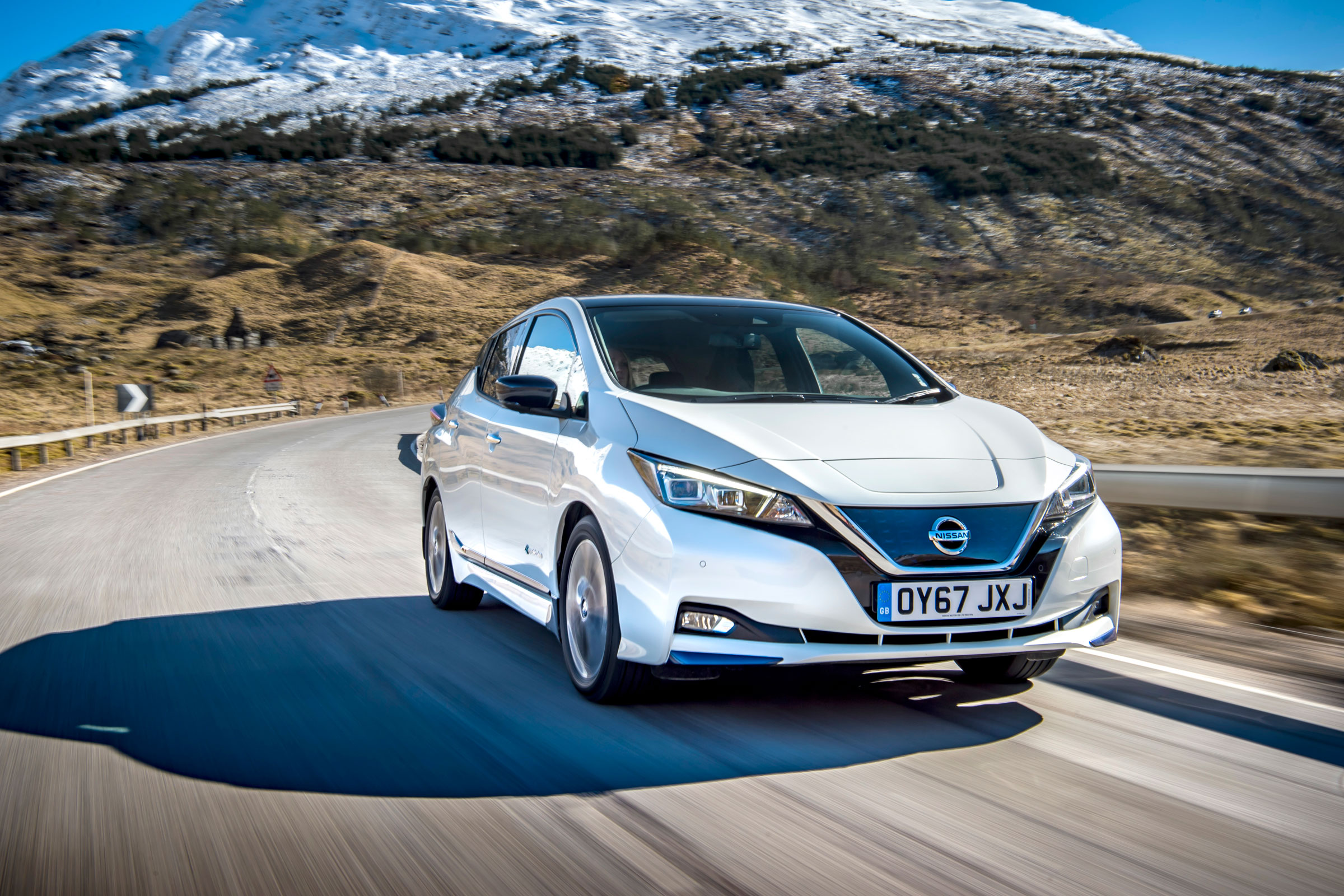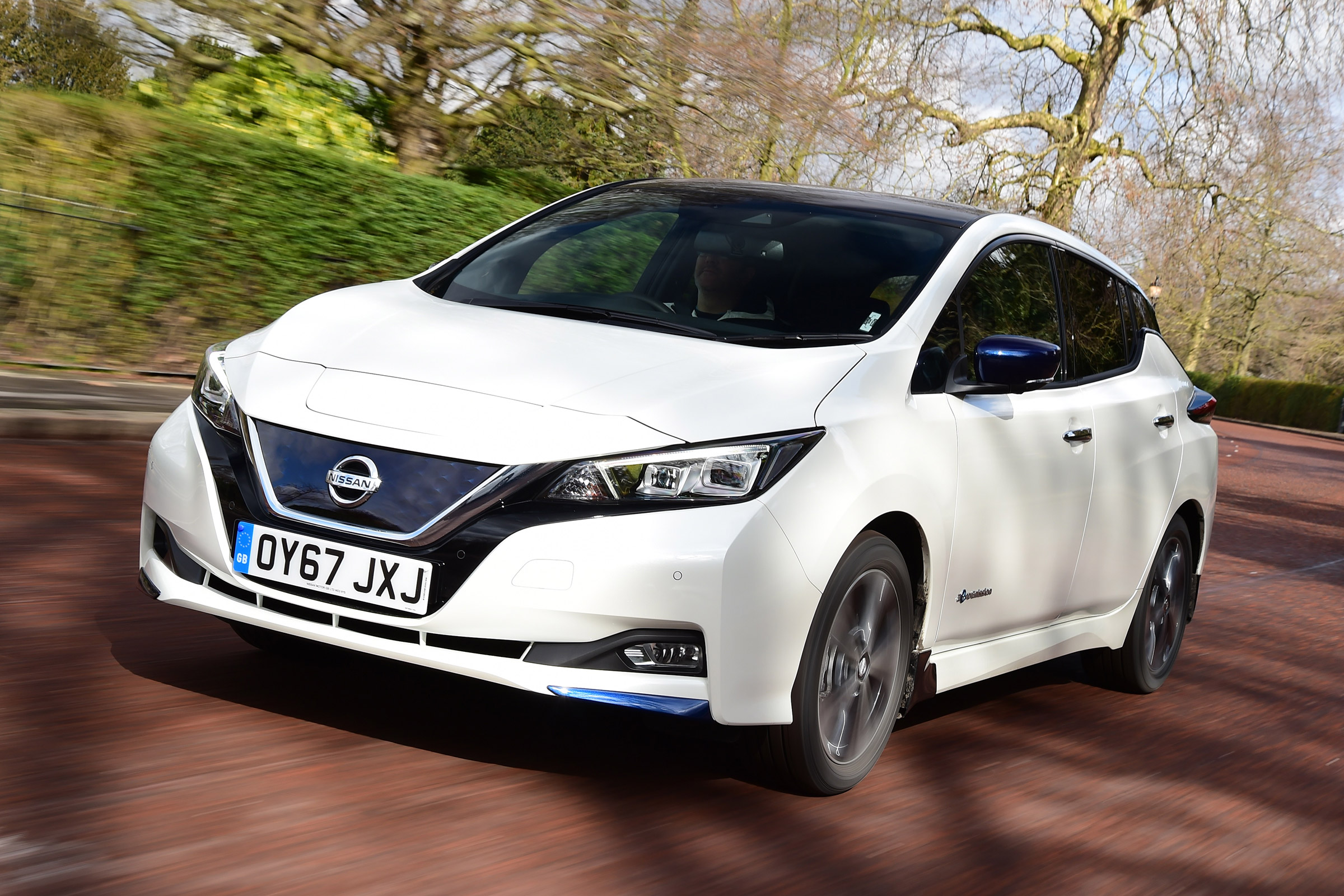The Nissan Leaf: More Than Just An Electric Car, It's A Powerhouse On Wheels
The Nissan Leaf: More Than Just an Electric Car, It’s a Powerhouse on Wheels
The Nissan Leaf: More Than Just an Electric Car, It’s a Powerhouse on Wheels

The Nissan Leaf, a pioneer in the electric vehicle (EV) market, has been a popular choice for environmentally conscious drivers since its debut in 2010. However, the 2023 model, with its upgraded battery and the revolutionary Vehicle-to-Home (V2H) technology, is not just another EV. It’s a game-changer, offering not only a sustainable and efficient driving experience but also the potential to revolutionize home energy management.
The 2023 Nissan Leaf: A Closer Look
The 2023 Leaf boasts a sleek and modern design that retains the familiar silhouette of its predecessors. It’s available in both S and SV trims, offering a range of features to cater to different needs and budgets.
Under the Hood:
- Powertrain: The Leaf is powered by a 147-horsepower electric motor, delivering a smooth and responsive driving experience. The 40kWh battery pack offers a respectable range of up to 149 miles on a single charge, while the 62kWh battery pack in the SV trim increases the range to a commendable 226 miles.
- Charging: The Leaf can be charged using a standard 120V outlet, a Level 2 charger, or a DC fast charger. With a DC fast charger, you can get up to 80% charge in approximately 40 minutes.
- Performance: The Leaf offers a surprisingly peppy acceleration, thanks to the instant torque delivery characteristic of electric motors. It’s not a sports car, but it’s more than capable of merging onto highways and keeping up with traffic.
Inside the Cabin:

- Interior: The Leaf’s interior is spacious and comfortable, with ample room for both passengers and cargo. The dashboard features a clean and modern design, with a large touchscreen infotainment system that is easy to use and navigate.
- The Electrifying Future: A Deep Dive Into Audi’s E-tron Lineup
- The Mercedes-Benz EVito: A Green Giant In The Commercial Van Segment
- The BMW I3 REX: A Glimpse Into The Future, With A Safety Net
- The Tesla Model 3 Performance: A Review Of Electrifying Speed And Everyday Usability
- The BMW IX M50: Electric Luxury Redefined, But Not Without Compromises
- Technology: The Leaf comes equipped with a suite of advanced safety features, including automatic emergency braking, lane departure warning, and blind spot monitoring. It also includes a driver assistance system that provides adaptive cruise control and automatic lane keeping.
- Infotainment: The Leaf’s infotainment system is user-friendly and offers features like Apple CarPlay and Android Auto integration, Bluetooth connectivity, and a navigation system.

The V2H Advantage: Powering Your Life
The 2023 Nissan Leaf is not just an EV; it’s a home energy solution. The V2H technology allows you to use the battery in your Leaf to power your home during a power outage or even to reduce your energy bills by charging your car when electricity rates are low and discharging it to power your home when rates are high.
How V2H Works:
- Charging: You can charge your Leaf’s battery using a Level 2 charger or a DC fast charger.
- Energy Storage: The Leaf’s battery acts as a large-scale energy storage system, capable of storing enough energy to power a typical home for several hours.
- Discharge: When you need to power your home, you can use a V2H adapter to transfer energy from your Leaf’s battery to your home’s electrical system.
Benefits of V2H:
- Power Outages: During a power outage, the Leaf can provide backup power to your home, ensuring you have essential appliances like lights, refrigerators, and heating systems running.
- Energy Savings: You can charge your Leaf when electricity rates are low and discharge the battery to power your home when rates are high, potentially saving you money on your energy bills.
- Reduced Carbon Footprint: By using renewable energy sources to charge your Leaf and power your home, you can reduce your dependence on fossil fuels and minimize your carbon footprint.
- The Electrifying Future: A Deep Dive Into Audi’s E-tron Lineup
- The Mercedes-Benz EVito: A Green Giant In The Commercial Van Segment
- The BMW I3 REX: A Glimpse Into The Future, With A Safety Net
- The Tesla Model 3 Performance: A Review Of Electrifying Speed And Everyday Usability
- The BMW IX M50: Electric Luxury Redefined, But Not Without Compromises
- Home Backup: The Leaf can be used as a backup power source for your home, providing peace of mind during emergencies.
The Future of V2H:
The V2H technology is still in its early stages, but its potential is immense. As the technology matures and becomes more affordable, it could revolutionize the way we manage our energy consumption and reduce our reliance on traditional power grids.
The Nissan Leaf: A Comprehensive Review
The 2023 Nissan Leaf is more than just an electric car; it’s a testament to Nissan’s commitment to innovation and sustainability. With its impressive range, advanced technology, and the revolutionary V2H capability, the Leaf offers a compelling package for environmentally conscious drivers who are looking for a practical and affordable EV.
Pros:
- Affordable: The Leaf is one of the most affordable EVs on the market, making it accessible to a wider range of buyers.
- Practical: The Leaf offers a spacious interior, ample cargo space, and a respectable range, making it a practical choice for everyday driving.
- V2H Technology: The V2H capability adds significant value to the Leaf, turning it into a home energy solution.
- Safety Features: The Leaf is equipped with a suite of advanced safety features, providing peace of mind for drivers and passengers.
- Technology: The Leaf’s infotainment system is user-friendly and offers features like Apple CarPlay and Android Auto integration, Bluetooth connectivity, and a navigation system.
Cons:
- Limited Range: Compared to some other EVs on the market, the Leaf’s range is relatively limited.
- Charging Time: While the Leaf can be charged using a DC fast charger, the charging time can still be a factor for long-distance trips.
- V2H Compatibility: The V2H technology is not compatible with all home electrical systems, so it’s important to check with your local electrician to ensure compatibility.
Conclusion:
The Nissan Leaf is a well-rounded EV that offers a compelling combination of affordability, practicality, and cutting-edge technology. The V2H capability adds a unique dimension to the Leaf, transforming it from a simple electric car to a home energy solution with the potential to revolutionize the way we manage our energy consumption. Whether you’re looking for a sustainable and efficient mode of transportation or a way to reduce your energy bills and prepare for power outages, the 2023 Nissan Leaf is a worthy contender.
Beyond the Review: A Look at the Future of V2H
The V2H technology has the potential to transform the energy landscape. Here are some of the exciting possibilities:
- Grid Stabilization: V2H can help stabilize the electrical grid by allowing EVs to act as distributed energy storage systems, absorbing excess energy during periods of low demand and releasing it during periods of high demand.
- Microgrids: V2H can be used to create microgrids, which are self-sufficient energy systems that can operate independently of the main power grid. This can be particularly beneficial in remote areas or during natural disasters.
- Renewable Energy Integration: V2H can facilitate the integration of renewable energy sources like solar and wind power into the grid, by allowing EVs to store excess energy generated during peak production periods and release it when needed.
- Electric Vehicle Charging: V2H can be used to optimize EV charging by allowing drivers to charge their vehicles at night when electricity rates are lower.
- Electric Vehicle-to-Grid (V2G): V2G technology, which is a more advanced version of V2H, allows EVs to sell excess energy back to the grid. This can provide drivers with a source of income and further contribute to grid stabilization.
The Nissan Leaf: A Pioneer in a New Era of Energy
The Nissan Leaf is not just an electric car; it’s a symbol of the future of transportation and energy. With its V2H technology, the Leaf is paving the way for a more sustainable and resilient energy future, where EVs play a key role in powering our homes and communities. As the technology continues to evolve and become more accessible, we can expect to see even more innovative applications of V2H in the years to come. The Nissan Leaf is a testament to the transformative power of technology and a glimpse into a future where EVs are not just vehicles but integral components of a smarter and more sustainable energy system.
sure
Thus, we hope this article has provided valuable insights into The Nissan Leaf: More Than Just an Electric Car, It’s a Powerhouse on Wheels. We appreciate your attention to our article. See you in our next article!
Posting Komentar
Posting Komentar